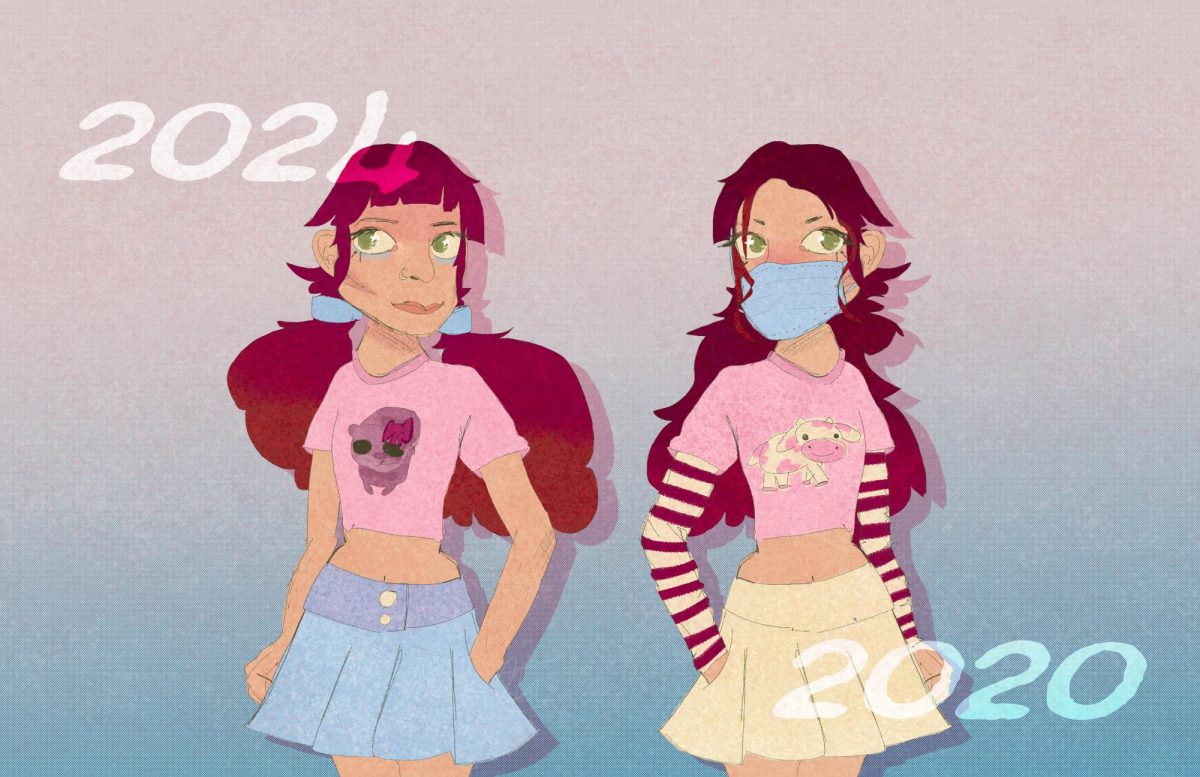COVID-19 was a pandemic that swept the entire world. People were stuck at home for months at a time and spent an entire year learning online. This has impacted many people’s perceptions of time that has passed since the quarantine and the “Zoom Era.”
While life has mostly gone back to relatively normal, there are some changes to everyday life. For example, many companies where employees had to come to work every day are now giving people the opportunity to work from home and only come into the office for a certain amount of days.
There are also changes in school days, like the addition of e-learning days, instead of just not having school. This is helpful because it allows school years to not extend into the summer months or emergency days that the district sets.
According to Mary Kekatos of ABC News, people “may also try to forget certain memories to protect ourselves from the trauma that we have been processing over the last three years,” which is supported by the same idea that since “people weren’t having new experiences, it may have affected the makeup of our brain, and therefore, the ability to form memories.”
Oshan Jarow in a scientific Vox article adds onto that second idea, by claiming, “Lockdowns imposed a sameness on our daily activities, where the lack of changing context could muddle everything into a compressed memory of time.”
For this reason, people may feel that there is a memory gap from before COVID to right now. This could manifest in being unable to remember how you spent years before COVID, how you spent time during the quarantine and “Zoom era,” or for a more simpler case, not believing that 4 years have passed since the United States first got put on lockdown.
Students at Metea also felt similar gaps in memory that impacted them even as far as this year.
“I feel like I don’t remember anything from middle school because of COVID,” sophomore Sarah Polugari said. “Sixth grade was cut short, seventh grade was over Zoom, and in eighth grade, we had to social distance and wear masks during school. I didn’t really learn anything, especially over Zoom because all the teachers didn’t really care as much. I remember going into eighth grade and being like, ‘I don’t remember learning any of this.’ ”
According to junior Jackie Lee, this memory gap affected how students are testing.
“I wasn’t able to learn science and math as well online as I would have been able to in person,” Lee said. “I didn’t fully understand what math I learned in eighth grade and this impacted my SAT and ACT scores.”
On top of this, people’s ability to be social is also affected.
“The friends I had were really good at staying together,” said Lee. “But not being able to be in a classroom setting and talk with your friends made keeping those friendships a bit more difficult.”
Polugari, on the other hand, focuses on a more positive way that social life changed during COVID.
“Before COVID, I usually only talked to my friends when we were in school and face-to-face,” Polugari said. “But during the quarantine, I got more used to texting and FaceTiming since I couldn’t see anyone in person.”



